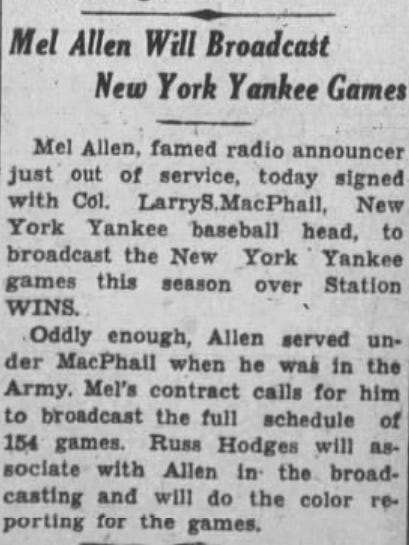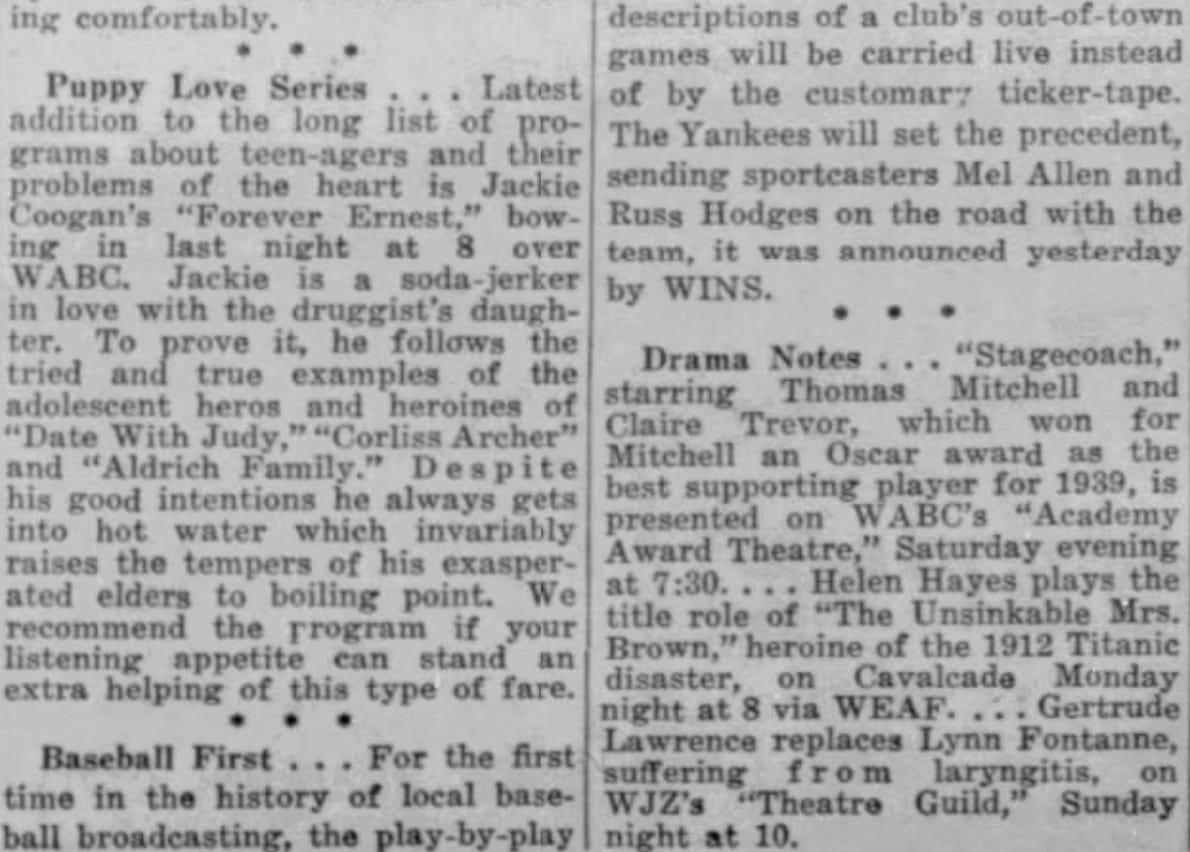The Birth Of Road Radio Broadcasts
I came across something pretty strange the other day in The Summer of ‘49:
The thing that surprised me was the report that no live broadcasts of games on the road existed before Mel Allen in 1946.
We’re talking about regular season games, of course — not World Series games, which had been broadcast nationwide for years. Still, I’m not always sure how much of David Halberstam’s inventive history I can trust. I decided to check this out for myself.
There’s an interesting SABR article about the history of the Yankees on the radio. However, it completely omits any mention of 1946:
None of this is particularly surprising. But, of course, this didn’t answer my question — and so I decided to turn to the world of newspapers.
As the SABR article mentioned, 1946 was Mel Allen’s first year back in the broadcasting booth after the war:
Some articles speculated that Allen would do recreations of radio games, as was customary at the time:
And apparently Allen and Hodges were also going to work together on football games:
I was starting to wonder if I was going to find anything. But then I ran across this:
They sure didn’t have much of a flare for history back in 1946, did they? This article was hidden at the bottom of the radio listing page. Without the search function of newspapers.com, I probably would have never found it.
Anyway, there you have it. The first road radio broadcasts in baseball history started in 1946 with the New York Yankees.
I’m not certain why it took so long. My guess is that the expense of relaying broadcasts had a lot to do with it. Of course, it’s obvious to anybody with even an ounce of business sense that your home attendance won’t be helped by your free radio broadcasts of home games. But that’s the way the world was back in those days.
I’m also not certain why the SABR article omitted this fact.










The assumption was that home television would hurt live attendance. But opinion was mixed about home radio, with most teams eventually reaching the conclusion that it increased fan interest but wasn't a substitute for actually seeing your team in action at the likes of "Beautiful Wrigley Field" (which Bill Veeck says was what the Cubs' broadcasters were instructed to call the place back when he was running the White Sox). And of course broadcasts then and now always promoted tickets for future games
I purchase CDs from Baseball Direct. One of the best is the 1949 World Series